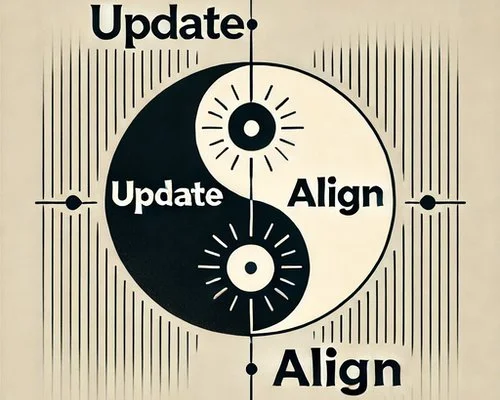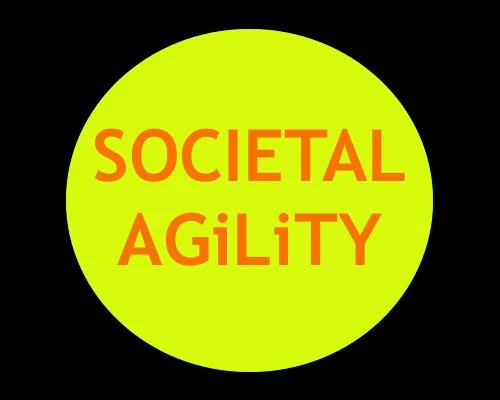The Fearless Servant
True servitude begins the moment one breaks free from fear.
Everyone wants change.
You’ll hear it in town halls and strategy decks, in donor reports and manifesto launches. Transformation, innovation, agility, purpose—the words are all there.
But here’s the truth:
Most people don’t want change.
They want the comfort of talking about change—without having to feel the discomfort of living it.
And what gets in the way every time?
Fear.
Fear dresses itself well.
In organisations and institutions, fear often wears a suit.
It hides behind process, compliance, sign-offs, metrics.
We don’t say,
“I’m scared to speak up.”
We say,
“Let’s follow the protocol.”
“This isn’t the right time.”
“We’ll escalate next quarter.”
And just like that, we choose safety over service.
In society, fear often wears tradition.
It hides behind respectability, reputation, religion, silence.
We don’t say,
“I’m afraid of being excluded.”
“I’m scared to speak against injustice.”
We say,
“This isn’t our place to interfere.”
“What will people say?”
“Let it be, it’s always been like this.”
And just like that, we choose conformity over conscience.
Silence over solidarity.
Survival over service.
Real servitude doesn’t come wrapped in obedience.
It comes from agency.
From the moment you say:
“I will no longer serve what is wrong, just because it’s easy.”
That moment changes everything.
I call that the Hurr moment.
The Hurr Moment
Every system—every organisation, every community, every conscience—faces its own Hurr moment.
That quiet, seismic point when you realise:
I can keep serving what’s expected…
Or I can start serving what’s right.
On the day of Ashura (a milestone moment in Islamic history that speaks to all humanity), in Karbala, Hurr ibn Yazid Al-Tamimi stood at that edge.
A commander in Yazid’s army, tasked with blocking Ḥussain ibn Ali’s path.
He had power. He had protection.
But he also had a conscience.
And at that moment, Hurr turned his horse around.
He walked away from the empire and toward truth… and death.
Why?
Because fear had finally lost its grip on him.
We’ve seen glimpses of this courage in our own time.
When Chelsea Manning exposed the human cost of war.
When Daniel Hale revealed the unseen toll of drone strikes.
When David McBride leaked evidence of war crimes.
When Reality Winner disclosed interference in democracy.
Each faced their own empire.
Each paid a heavy price.
Each turned their horse around.
And that is what Karbala teaches us:
True servitude begins the moment you break free from fear.
You cannot serve truth while you’re still scared of the consequences.
That applies whether you’re:
A product owner trying to challenge a broken delivery model,
A civil servant pressured to silence injustice,
A young leader scared of losing their job for telling the truth,
A Scrum Master choosing to protect psychological safety over pleasing leadership,
A project manager refusing to manipulate timelines to appease stakeholders,
A political activist putting their freedom on the line to speak truth to power.
Fear asks:
“What will happen to me if I speak up?”
Servitude asks:
“What will happen to others if I stay silent?”
Organisational change? It starts here.
Not in the offsite.
Not in the pilot phase.
Not in the slick roadmap with colour-coded OKRs.
It starts the moment people in the system are no longer afraid:
To name dysfunction — whether it’s a broken delivery model in a product team, or a harmful funding dynamic in a nonprofit coalition.
To resist dehumanising norms — whether it’s in a toxic boardroom, or in a grassroots campaign that excludes the very communities it claims to serve.
To prioritise justice over job security — whether you’re a junior analyst in a global consultancy, or an NGO worker refusing to sanitise a report to keep the donor happy.
You want transformation?
Create conditions where serving what’s right is safer than serving what’s easy.
This isn’t about rebellion for rebellion’s sake.
It’s about restoring dignity in the act of service.
It’s about making sure your systems don’t punish the truth-tellers.
Because if your culture silences the brave, you don’t have a performance issue, you have a servitude issue.
In every moment of change, someone has to be Hurr.
Someone has to say:
“No more.”
“Not in my name.”
“Not while I’m still here.”
That someone could be you.
True servitude begins the moment you break free from fear.
Not before.
Ask yourself. Ask your team. Ask your leaders.
What are we really serving?
And what might we do, together, if fear didn’t stand in our way?
Thanks for reading. If you’re new here, I’m Kubair Shirazee, I help people, teams, organisations and communities navigate past the status quo and explore better ways of collaborating and delivering impact.









